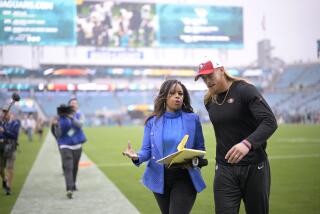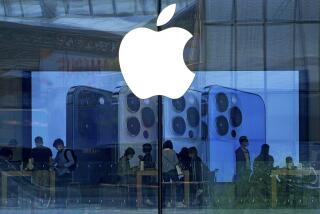Judge Bars Suits by Nintendo, Atari Games
- Share via
Nintendo of America and Atari Games, which are waging a two-fisted battle for the hearts and wallets of video game lovers, have been prohibited from pulling retailers into the fray.
U.S. District Judge Fern Smith in San Francisco late Friday granted a preliminary injunction against Nintendo of America and its Japanese owner, Nintendo Co., prohibiting them from filing patent infringement suits against retailers that carry Atari Games’ Tengen software. She issued a similar ban against Atari Games.
Atari Games said in a statement Sunday that the injunction will be in place until legal disputes between the two companies have been resolved. The judge set a trial date of Nov. 14.
The struggle began two weeks before Christmas, when Atari Games filed suit contending that Nintendo monopolized the $2-billion U.S. market for video games.
The equipment on which the games are played accepts only special cartridges made by Nintendo. In its suit, Atari Games claimed that it had lost $30 million to $35 million in sales because Nintendo limited the number of cartridges it sold to Atari Games under a licensing agreement for its Pac-Man, RBI Baseball and Gauntlet games.
Atari Games also said in the suit that it had developed its own game cartridges that were compatible with the Nintendo system. But Nintendo charged in a countersuit that development of those cartridges violated the companies’ contract. Nintendo revoked the licensing agreement.
Atari Games, based in Milpitas, Calif., said it sought the injunction after learning that several retailers selling its Tengen video games had received letters from Nintendo insisting that they “immediately remove all Tengen products from their shelves.” The letters, according to Atari Games, warned that Nintendo would take legal action.
A Nintendo of America official said Sunday that the company, based in Redmond, Wash., would try to recover any damages against retailers selling Tengen products if the case is decided in Nintendo’s favor.
“We feel very strongly that our patent is valid and enforceable, and we intend to enforce it across the board,” said Howard Lincoln, senior vice president.
More to Read
Inside the business of entertainment
The Wide Shot brings you news, analysis and insights on everything from streaming wars to production — and what it all means for the future.
You may occasionally receive promotional content from the Los Angeles Times.











